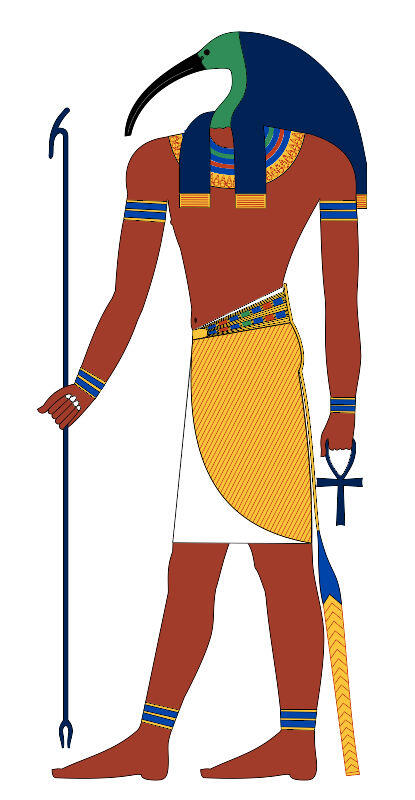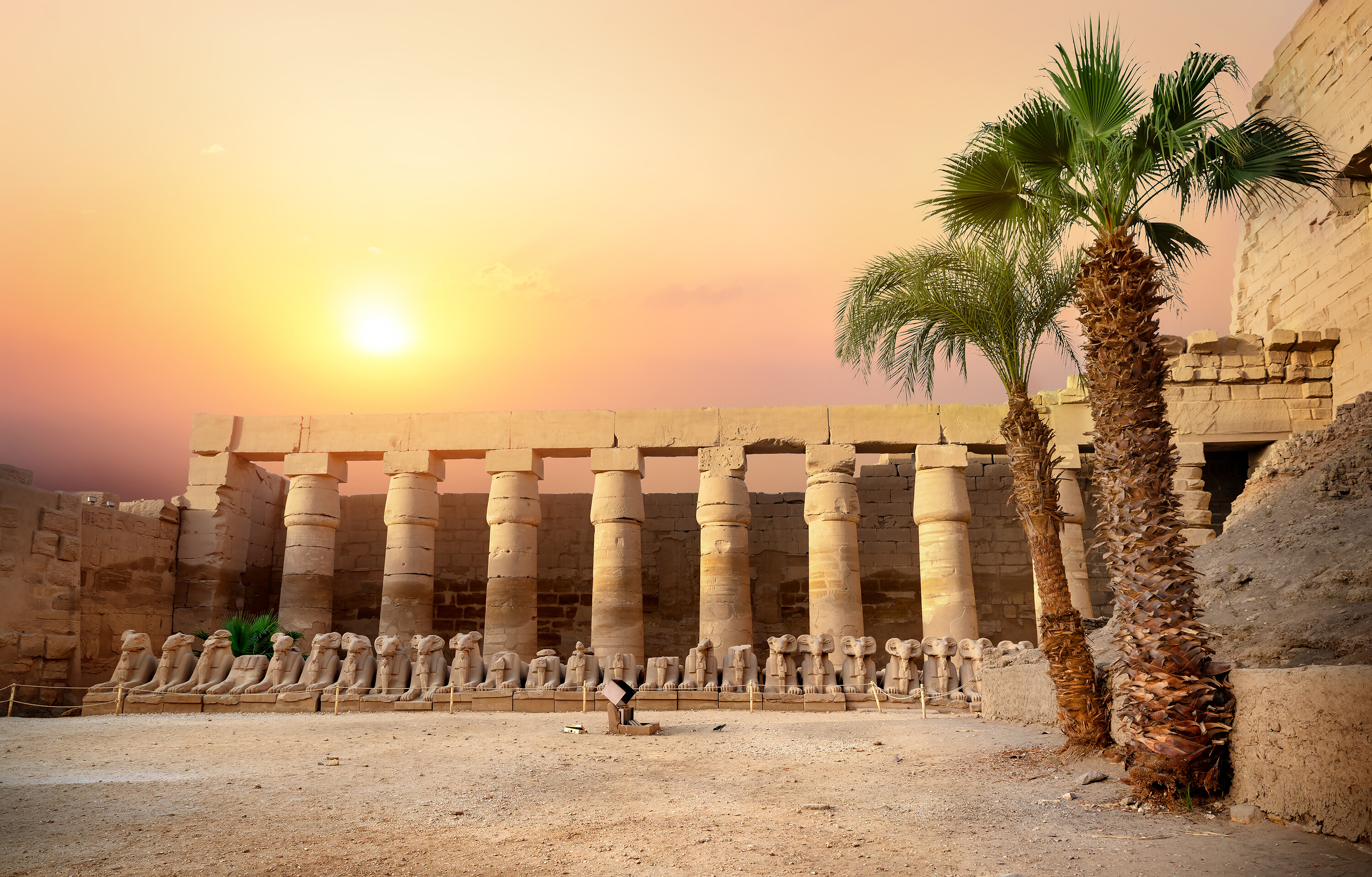
Thoth
Thoth is an Ancient Egyptian god who governed the moon, writing, wisdom, science, art, magic, and knowledge. He was a patron of scribes and messenger of the gods. Thoth was married to Ma’at but was in love with Nut. His feminine version was Seshat. In Greek mythology, his counterpart was Hermes.
Thoth was shown as a deity who had a major impact on other gods but also the lives of the common men and women. He would always stand by Ra as he glided in the sky in his solar barge. On the other side of the barge stood his wife, Ma’at. Egyptians celebrated him as someone who preserved the universe.
As time went by, he was delegated even more roles and responsibilities. For example, during the later Ancient Egyptian history, he was commonly presented as the arbiter of the gods, judge of the dead, and deity that manages magic in the universe.
Given that his role changed significantly, it makes sense that Thoth took various shapes over time. In most cases, he was shown as a human with a head of an ibis. In this form, he also had a lunar disc and a crescent moon on his head. In certain images, he was depicted with a double crown or Atef crown. Sometimes, just a plain image of ibis would signify the deity.
Alternatively, the Egyptian artist would depict the deity as a man with a head of a baboon. On the images, he takes the role of A’an, the god of equilibrium. All in all, Thoth’s presentation changed with the change of his role. In many cases, he was shown holding an Egyptian symbol of life known as an ankh.
In mythology, Thoth was presented as the inventor of hieroglyphs. When he would go to the underworld, he would take the form of A’an. In this form, Thoth would weigh the hearts of the deceased against a feather. In other words, he performed the same role as his wife, Ma’at.
According to the Egyptians, he was a self-produced entity that governed both earthly and divine law. Thoth could judge not only the humans but also his peers. According to them, he was crucial for astrology, helping humans calculate and write down the layout of the stars, Earth, and everything in heaven.
Egyptian mythology credits Thoth with the creation of the 365-day calendar. Originally, according to the myth, the year was only 360 days long and Nut was sterile during these days, unable to bear children. Thoth gambled with the Moon for 1/72nd of its light (360/72 = 5), or 5 days, and won. During these 5 days, Nut and Geb gave birth to Osiris, Set, Isis, and Nephthys.



